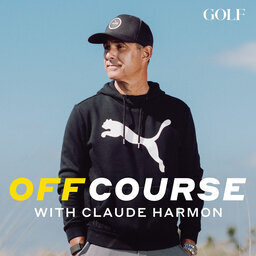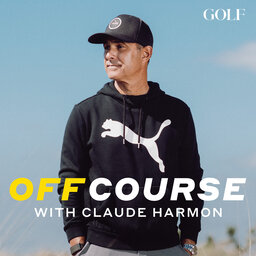J.R. Smith Interview: Swish on going back to school, playing collegiate golf and winning championships with LeBron
In this episode of GOLF’s Off Course with Claude Harmon III, 2x NBA Champion J.R. Smith drops in as he shifts from the court to the course. Straight from high school to the NBA, J.R. became one of the most entertaining players in the League spanning 5 teams in 16 seasons. Most recently he enrolled at North Carolina A&T University to earn his degree and tee it up for the Aggies golf team as a student. Hear the lessons he learned from playing alongside greats like Lebron James, how Moses Malone got him hooked on golf and his philosophy on practicing with a purpose in golf, just like basketball.
In 1 playlist(s)
Off Course with Claude Harmon
Golf is a very simple game that tends to confuse smart people. In 'Off Course' we look to simplify i…Social links
Follow podcast
Recent clips

Dave Phillips Interview: Jon Rahm — his game, ascension to World No. 1, relationship with Phil and what amateurs can learn from his swing
1:11:00

Marina Alex Interview: The importance of her second LPGA Tour win, how big events help grow the women’s game and the core differences between the PGA and LPGA Tours
1:22:47

Mito Pereira Interview: How he prepared for his first PGA Championship, his surprise encounter with Tiger and the growth of the game in Chile
1:07:10
 Off Course with Claude Harmon
Off Course with Claude Harmon